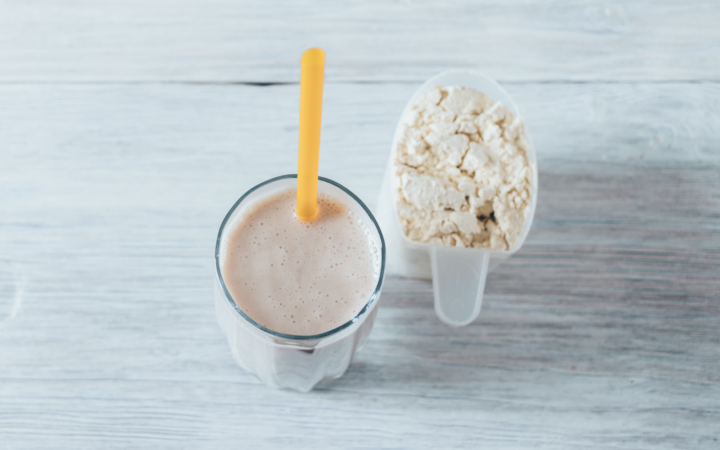Friend or Foe: The Truth About Pre-Workout Drinks

Looking for an extra boost that takes your workout to the next level?
You’re not the only one. The popularity of sports nutrition supplements has skyrocketed in the last decade, becoming a multi-billion dollar industry. And it’s not just athletes and extreme bodybuilders. Regular gym-goers and fitness-minded folks have led the uptick in sales thanks to an ever-growing interest in health and wellness.
One of the trends that has come out of this whole scene is pre-workout supplements. While there are plenty of people who don’t take any sort of special pill, powder, or drink before a workout, there are those who swear by these supplements.
But are they helpful or harmful? Read on to find out what you need to know before taking a pre-workout drink or any other pre-workout supplement.

What Are Pre-Workout Drinks?
Just as the name suggests, pre-workout drinks are beverages that are taken prior to a workout.
Often referred to as simply a “pre-workout” (as in, “I always take a pre-workout before hitting the gym”), these supplements are usually a workout powder drink mix or canned drink.
Once consumed, these drinks will supposedly give you more pre-workout energy, better exercise performance, and increased muscle growth.
Different Types of Pre-Workout Drinks
Although pre-workout ingredients vary from one brand to the next—and make no mistake, there are lots of brands promoting their own proprietary blends as the best pre-workout supplements—the most common include caffeine, creatine monohydrate, beetroot juice, and specific amino acids.
Take a look at why these ingredients are often used in pre-workout drinks.
Caffeine
As in almost all energy drinks, most pre-workout supplements contain caffeine, the world’s most popular stimulant that heightens alertness and energy levels. (1) But beyond boosting energy, studies suggest that caffeine might also promote muscle power (2) and enhance sports performance. This includes muscle strength and endurance, and high-intensity sprints following doses that exceed about 200mg. (3)
FYI: The Mayo Clinic asserts that up to 400 milligrams of caffeine per day is safe for most healthy adults, which is approximately the amount of caffeine in four cups of brewed coffee. If you don’t like coffee, you can always use some caffeine alternatives.
Creatine
One of the most popular and widely researched natural supplements, creatine, is an organic compound naturally produced by the body.
It has been found to enhance strength, build up muscle mass, improve high-intensity intermittent speed training, and promote aerobic endurance performance. (4)
What’s more, creatine also has positive effects on strength, power, fat-free mass, and even neurological function. It’s worth mentioning that some studies have determined taking creatine immediately post-workout is superior to pre-workout vis a vis body composition and strength. (6)
Beetroot
Whether you call it beetroot or simply beets, the bottom line is that this root vegetable is beloved for its many health benefits including lowering blood pressure, boosting brain power, supporting liver health, and improving athletic performance.
In fact, research shows that beets increase the body’s levels of nitric oxide, which in turn expands blood vessels to increase blood flow, enhance cardiovascular performance, and reduce stress on the heart during workouts. (7)
Beta-Alanine
Many pre-workout drinks include beta-alanine because it’s an amino acid that fights fatigue by reducing the amount of acid that builds up in the muscles during exercise. (8)
While some studies have shown the potential benefits of beta-alanine for long-term endurance exercise, most research suggests that optimum results are limited to exercise lasting between one to four minutes. (9)
BCAAs
Also known as branched-chain amino acids, BCAAs are arginine, leucine, isoleucine, and valine. Like other amino acids, BCAAs are naturally found in humans and animals, serving as the building blocks of protein. But these particular amino acids are used in pre-workout supplements for their ability to store glycogen, which is the main fuel used by muscles during exercise. (10)
What’s more, research suggests BCAAs can also reduce muscle damage as well as mental and physical fatigue. (11)
Citrulline
Another amino acid typically found in pre-workout supplements is citrulline, aka L-citrulline. Although it doesn’t build protein like other amino acids, citrulline is essential for removing ammonia from the body. Some research shows it also helps expand blood vessels for better blood flow, lowers blood pressure, and builds muscle. (12)
Most supplements use L-citrulline or citrulline malate, the latter being a combination of citrulline and the organic salt malate.
Do They Work?
As the most recent scientific reviews attest, the efficacy and safety of pre-workout drinks are “preliminary at best.” (13) A study published in 2017 found that pre-workout supplements—both caffeinated and non-caffeinated—failed to improve muscle force during lower body resistance exercise. (14)
Another study published in 2016 found that pre-workout energy drinks offer no significant benefits on upper body muscular endurance performance. (15) Still, there are diehard fans (and brands pushing their products) that proclaim these workout supplements improve energy production, reduce fatigue, and enhance muscle.

Natural Pre-Workout Options
If it’s looking like a “pre-workout” is not for you, don’t worry. Consider eating your way to a better workout. Here are some natural food and drink options that can boost energy, improve performance, and spur muscle growth.
- Most doctors and dieticians will attest that eating a diet high in nutrient-rich whole foods will provide the fuel you need for any workout. Instead of carbo-loading, try just 15 grams of carbs before your workout with half a banana or a slice of whole-grain bread with fruit spread.
- Eat a few grams of protein for natural creatine. Since this amino acid is found in the muscle cells of animals, simply eat a small portion red meat, pork, chicken, fish at least half an hour before hitting the gym.
- Try mushrooms, especially Cordyceps. These robust fungi are packed with health benefits, not the least of which is increased energy, sports performance, and endurance. No wonder athletes can’t get enough.
- If you’re OK with caffeine, drink a cup of coffee about 30 minutes before working out to get that extra boost you want. You could also consider a cup of green tea, which doesn’t have as much caffeine as coffee, but has the added benefit of extra antioxidants. (By the way, if you don’t want to do caffeine, take a look at our guide on natural caffeine alternatives.)
Safety and Potential Side Effects
The main concern about pre-workout supplements is that they’re not regulated by the FDA (Food and Drug Administration). That’s why it’s important to only buy from reputable brands, preferably those that are certified by third-party regulators.
Pre-workout drinks are considered relatively safe to use, but the impact of long-term use is not so clear. Most studies that have assessed the safety of these supplements were conducted in time spans of less than eight weeks.
As such, more information is needed regarding the safety of long-term supplementation. (16)
As for side effects, there have been reports of everything from tingling or numbing sensations to cramps, headaches, itching, and even vomiting.
If the pre-workout drink has caffeine, the most common side effects are increased heart rate, jitteriness, and trouble sleeping.

Your Workout, Your Way
Now that you know a bit more about pre-workout drinks, it’s up to you to decide whether or not to use them. Of course, nobody would blame you for wanting to boost your energy levels and improve exercise performance. But chugging down a “magic elixir” might not be the answer.
Depending on what’s inside your pre-workout drink, you’re probably better off sticking to whole foods and a cup of coffee. As always, proceed with caution and check with your doctor before starting any new dietary supplement.

